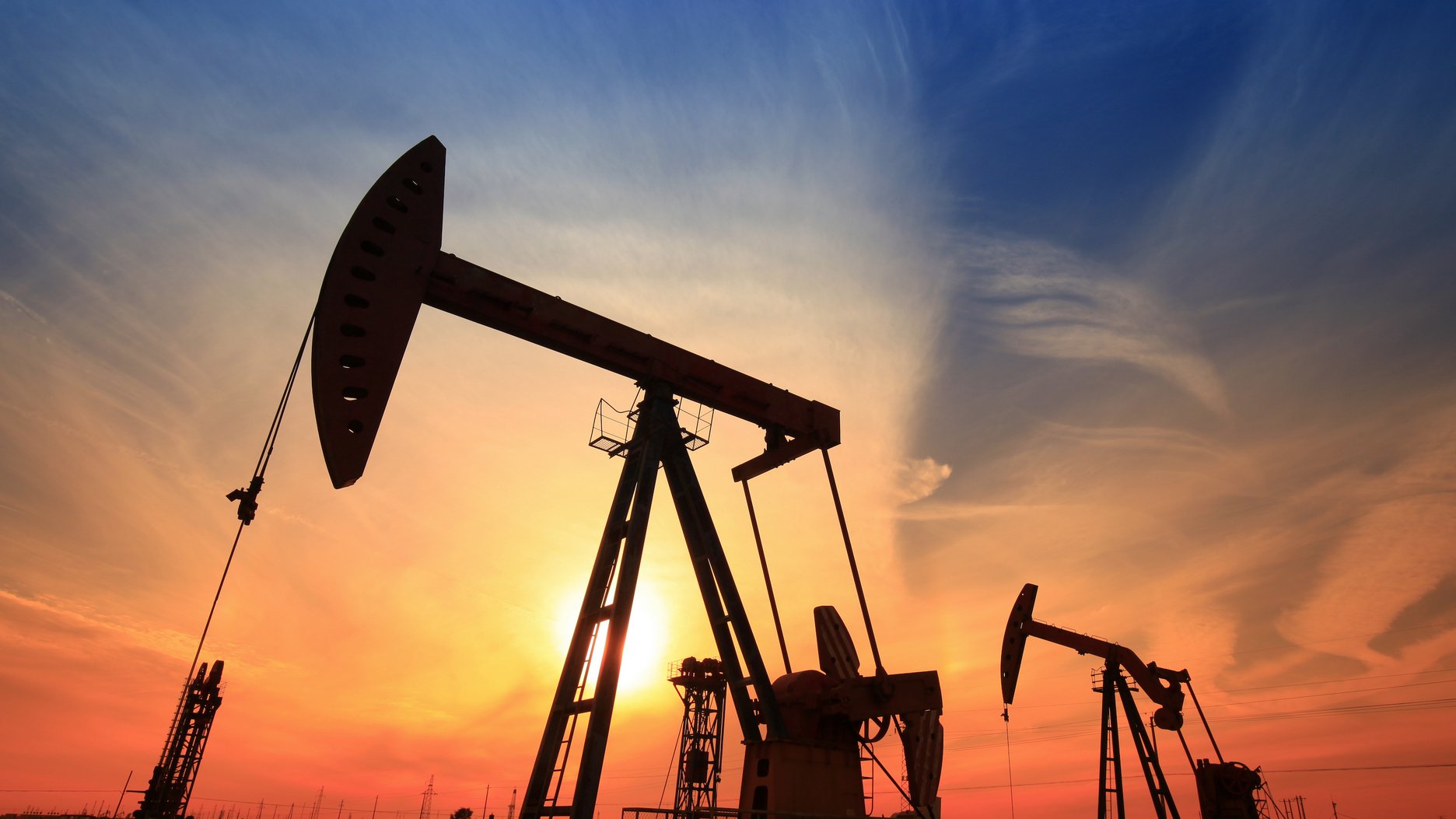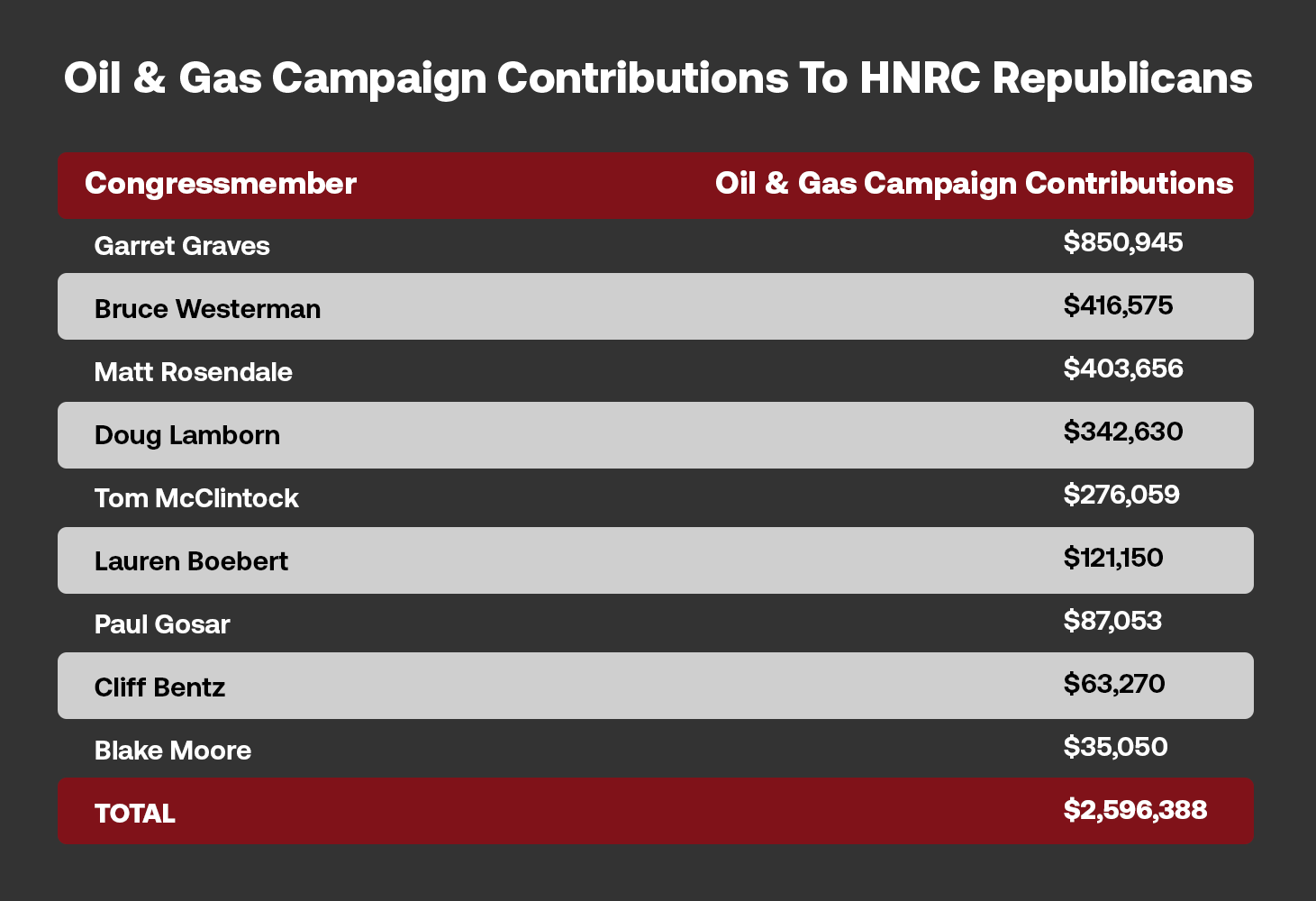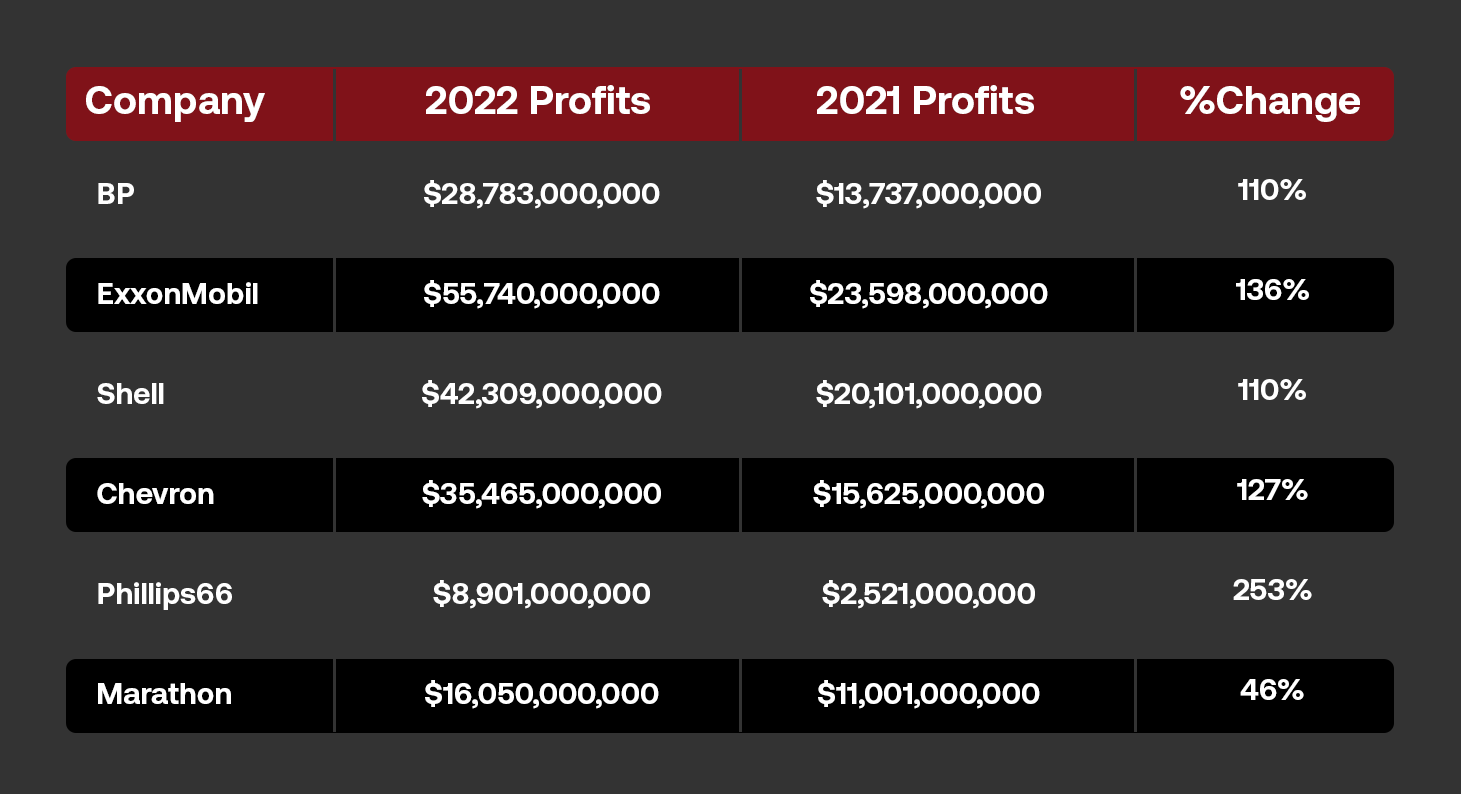Blog
Eight Facts To Know About H.R. 1

2022 was a year of winners and losers at the gas pump.
American consumers took the hit of paying skyrocketing gas prices, while the oil and gas industry reaped the benefits of over $450 billion in profits. Now, Big Oil continues to have an advantage thanks to their MAGA Republican allies in Congress, and is set to rake in even more as they work to slash public land protections and pollute communities of color in the process.
On March 30, 2023, the House of Representatives MAGA Majority passed H.R. 1 the “Lower Energy Costs Act” – an energy package that gives Big Oil even more power over federal public lands while effectively shutting the public out of decision-making.
House Republicans say the bill will deliver lower energy costs for working Americans, but the contents of H.R. 1 prove that the MAGA Natural Resources Committee is doing the bidding of industry executives – not protecting consumers from Big Oil’s brutal price gouging and dangerous pollution.
And with that, here are eight facts you should know about H.R. 1:
FACT 1: GOP members on the House Natural Resources Committee received millions from the oil and gas industry and are now doing their bidding.
Not only have top House Republicans and GOP members of the House Natural Resources Committee taken over $7.6 million from the oil and gas industry, Speaker Kevin McCarthy is the highest recipient of oil and gas contributions in the entire history of the chamber with $2.8 million in career donations.

FACT 2: Big Oil doesn’t need government support after a record-breaking $450 billion in profits off the backs of consumers.
Twenty-seven of the top oil and gas companies raked in over $450 billion in 2022, with giants like Exxon Mobil and Shell doubling their profits at the expense of Americans trying to fill their tanks.

Instead of using their profits to help relieve consumers’ pain at the pump, Big Oil passed on their success to shareholders, rewarding them with over $160 billion in buybacks and dividends.
FACT 3: The industry has more than enough access to public lands.
As they continue to blame the Biden administration for slower production and higher prices, the oil and gas industry is sitting on a stockpile of 7,700 unused drilling permits.
How did so much land end up in Big Oil’s control? During the last three months of the Trump administration, the industry submitted more than 3,000 drilling permit applications, according to data from the U.S. Bureau of Land Management. Records show officials approved almost 1,400 drilling applications during that time – the highest number of approvals during Trump’s four-year term.
Today, over half of the 26 million acres of federal land currently under oil and gas leasing is sitting unused – with Wyoming independently boasting a “stockpile” of leases that could support over 60 more years of drilling.
Ahead of the vote on H.R. 1, Rep. Katherine Clark called out House Republicans for helping Big Oil horde public lands and profits at the expense of Americans:
FACT 4: H.R. 1’s drilling royalty rate proposal would cost taxpayers.
As Big Oil continues to hoard access to our lands and waters, H.R. 1 would ensure taxpayers
get even less in return by proposing to cut the minimum onshore drilling royalty rates from 16.67% to a mere 12.5%.
As Rep. Ro Kanna said, Big Oil will only use this reward to increase their profits, not their production.
FACT 5: Stopping elected officials from blocking potentially hazardous energy projects puts communities at risk.
H.R. 1 would make it easier than ever for Big Oil to get approval for dangerous pipeline projects by limiting the scope of environmental reviews under the National Environmental Policy Act (NEPA).
Typically under NEPA, when a state or local government wants to use federal funds to build something, it must first complete an environmental review of the project’s impacts on the surrounding area. The GOP’s bill would limit the review only to “areas that are within or immediately adjacent to the lease plot or plots,” hiding the effects of oil and gas production on its host community.
FACT 6: Limiting public engagement helps hide fracking’s links to impaired health and ecological destruction.
By making it harder for communities to keep out harmful projects, House Republicans would expose even more communities to life-threatening pollution.
The oil and gas industry has a history of creating “sacrifice zones” by drilling for and producing their products in low-income communities and communities of color. As a result, people of color are exposed to more pollution from nearly every source – with 56% of dangerous oil refinery emissions harming people of color, and Black, Brown, and Indigenous communities additionally enduring 66% of manufacturing petrochemical emissions.
And as Big Oil reaps the benefits, these communities are the ones left to suffer with fatal health conditions like asthma, childhood cancer, and strokes – in addition to the environmental costs of habitat destruction, species decline, and land degradation it leaves in its wake.
On the House floor, Rep. McGovern called out Big Oil and House Republicans for their pro-polluter plan:
FACT 7: The H.R. 1’s permitting reforms would restrict the public’s ability to speak out on potential projects that threaten their health, safety, and environment.
To stop local communities from speaking up about the health and environmental impact of Big Oil’s greed, H.R. 1 would limit the time the public has to take legal action against energy projects.
It would be another dangerous addition to fossil fuel groups’ long legacy of helping pass un-American anti-protest laws – including efforts to create new felonies and fines to deter opposition in response to anti-industry movements like the Dakota Access project protests.
FACT 8: H.R. 1 purports to lower energy prices but does nothing to address the real cause of high costs – corporate greed.
While Big Oil has tried to scapegoat their production costs on everything from the war in Ukraine to Biden’s conservation policies, it’s clear that oil and gas companies prefer operating when crude oil prices are high. By delaying fracking until prices are higher, they can justify hiking prices while still playing the victim.
However, their grift doesn’t end once crude oil prices decrease. As the CEO of Halliburton explained, customers learn to “expect and accept” their increased prices – allowing them to keep prices high even as their production costs sink.
Ahead of the vote on H.R. 1, Rep. Kathy Castor called out the GOP for pretending to address pain at the pump while ignoring the greed and profiteering of Big Oil.
All of the facts listed above spotlight one resounding truth: H.R. 1 would have a catastrophic impact on our public lands and our ability to address the most severe effects of the climate crisis. President Biden and the Senate must take action to stop this disastrous bill from ever becoming law.
